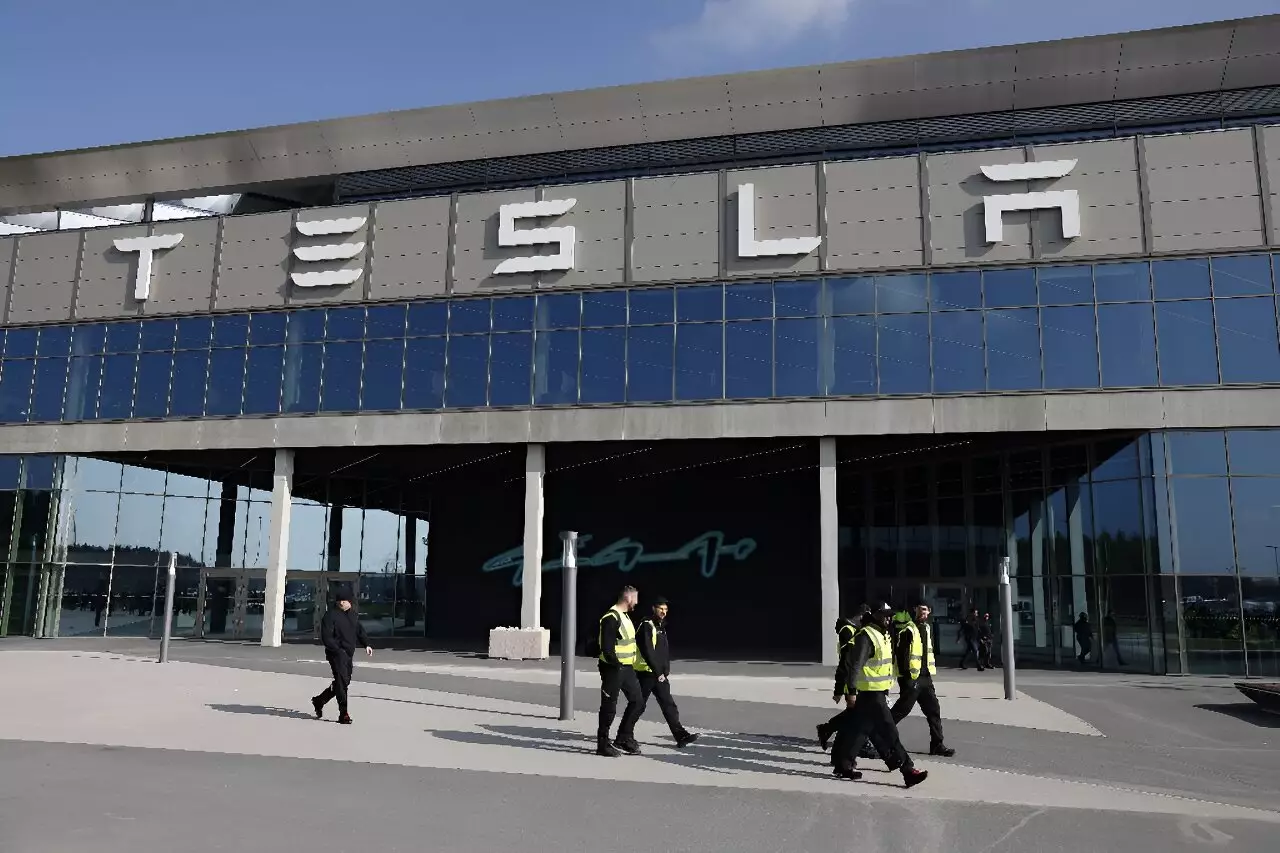Tesla reported a sharp decline in first-quarter auto sales, with global deliveries totaling 386,810 units, down 8.5 percent compared to the previous period. This drop in sales was attributed to several factors, including weak demand in China, where Tesla faces tough competition from local electric vehicle makers. Additionally, an arson attack on power lines in Germany affected the output at Tesla’s European factory, further impacting its sales performance.
The production ramp-up of an updated Model 3 at Tesla’s California factory, as well as plant shutdowns due to shipping diversions caused by the Red Sea conflict and the attack on Gigafactory Berlin, also contributed to the decline in sales. Analysts have been anticipating a challenging first quarter for Tesla, with increased competition in China and price cuts by other automakers putting pressure on the company’s performance. Financial services firm Morningstar highlighted a slowdown in demand for Tesla’s vehicles as a key factor in the decline in sales.
Concerns Over Tesla’s Future
Wedbush analyst Dan Ives described Tesla’s first-quarter performance as an “unmitigated disaster,” raising concerns about the company’s future outlook. He emphasized the need for Elon Musk to address the challenges and turnaround the situation to avoid disrupting the long-term narrative of Tesla. With competitors in the electric vehicle market cutting prices to attract customers, Tesla faces a tough road ahead to maintain its market position and profitability.
In contrast to Tesla’s decline, Toyota reported a significant increase in US auto sales for the quarter, with a growth of 20.3 percent to 565,098 units. The Japanese automaker attributed this growth to improved inventory levels, enabling it to meet the strong customer demand for its vehicles. Toyota’s success in the US market was also reflected in broad-based gains across its nameplate and the Lexus luxury brand.
Positive Trend for Legacy Players
General Motors and Honda also experienced growth in their US auto sales, with GM reporting a 1.5 percent increase and Honda a 17.3 percent jump in quarterly sales. Despite challenges in the macro environment, these legacy automakers managed to capitalize on improved inventory situations to drive sales growth. The Equinox EV from GM, targeted at middle- and working-class consumers, is expected to further boost the company’s EV sales with competitive pricing and federal tax credits available.
Outlook for the US Auto Market
While some potential car consumers may hold off on purchases due to expectations of interest rate cuts by the US Federal Reserve, the overall trend for consumer spending in the near term remains uncertain. Market watchers caution that higher interest rates could impact consumer behavior and affect the sales performance of automakers in the coming quarters. Despite challenges in the global auto market, legacy players like Toyota continue to demonstrate resilience and growth in key markets like the US.
Tesla’s drop in sales underscores the challenges of the evolving electric vehicle market, with increased competition and pricing pressures impacting the company’s performance. In contrast, legacy players like Toyota are leveraging improved inventory levels and strong customer demand to drive sales growth in the US market. As the auto industry continues to evolve, companies will need to adapt to changing consumer preferences and market dynamics to sustain their competitive edge.



Leave a Reply